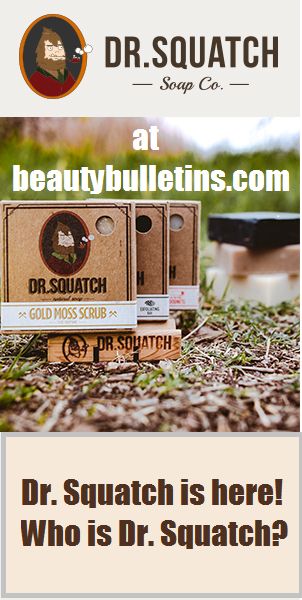In a world increasingly conscious of ethical consumerism, more individuals are scrutinizing the brands they support. Among the myriad choices for personal grooming products, Dr. Squatch has emerged as a prominent player known for its artisanal approach to soap-making and grooming essentials. But a pressing question looms for conscientious consumers: Is Dr. Squatch truly animal cruelty-free and vegan? This inquiry not only impacts purchasing decisions but also reflects a larger trend towards ethical accountability in the beauty and personal care industry.
To unravel the intricacies behind Dr. Squatch’s ethical claims, it is vital to understand the brand’s commitments. At its core, Dr. Squatch promises to craft products that are free from animal testing and harmful ingredients. The founder’s dedication to creating a grooming line that respects both human and animal life resonates deeply with an audience eager for integrity in their choices. However, beyond surface-level claims, it is essential to delve into the specifics of their cruelty-free and vegan assertions.
Firstly, what does “cruelty-free” truly entail? The term indicates that no animals were harmed or subjected to testing throughout the production process. Dr. Squatch actively champions this principle, asserting that it stands firmly against any animal testing, aligning itself with organizations that promote humane practices. The brand’s unwavering commitment to this philosophy is not only commendable, but it also sets a standard within the industry where such practices are still alarmingly commonplace.
Moreover, the quest for grooming products involves navigating a labyrinth of terminology. While “cruelty-free” addresses the treatment of animals during testing, “vegan” refers to the exclusion of all animal-derived ingredients in formulations. Dr. Squatch claims that its products are crafted with plant-based components, eschewing animal products like lanolin, beeswax, and keratin. This shift towards a plant-centric approach serves not only to respect animal welfare but also caters to an increasingly diverse consumer base that includes those who opt for veganism for various ethical or health reasons.
Yet, some scrutiny arises with terminology. Many brands may mark their products as vegan but may still rely on suppliers who engage in questionable practices regarding animal welfare. Transparency is paramount in these discussions. Dr. Squatch purports to source its ingredients conscientiously, promising to vet suppliers to ensure that their methods align with cruelty-free and vegan standards. This pledge implies a responsibility that consumers ought to investigate, fostering an environment where companies are held accountable for their sourcing practices.
Additionally, beyond the ingredients themselves, the packaging also merits consideration. Eco-friendliness and sustainable practices are becoming increasingly relevant in the conversation about ethical consumerism. While Dr. Squatch has made strides in using recyclable materials, gauging the overall environmental impact of its packaging remains essential. Ethical grooming transcends the product itself; it encompasses the entire lifecycle of the product from creation to disposal, which includes emphasizing recyclability and the carbon footprint of the packaging.
Furthermore, one must ponder the broader implications of supporting brands like Dr. Squatch. Each purchase contributes to the demand for ethical products and reinforces the notion that cruelty-free, vegan products can be both luxurious and effective. By voicing consumer desires for transparency and accountability, shoppers can influence larger market trends, encouraging more brands to adopt humane practices. Supporting a brand that prioritizes animal welfare not only cultivates moral satisfaction but also fosters a collective shift in perspective across the beauty and grooming sectors.
Interestingly, Dr. Squatch’s growth in popularity is not just fuelled by ethical pursuits; it also stems from the effectiveness and quality of its products. Consumers often report a heightened satisfaction with their grooming routine when using Dr. Squatch soaps and shampoos—products reputed for their richness and fragrance derived from natural, plant-based ingredients. The intersection of efficacy and ethics creates a compelling narrative that piques curiosity and encourages ongoing exploration of their offerings.
Still, it bears noting that skepticism should be a constant companion in the chase for ethical products. Consumers must remain vigilant, conducting research, reading reviews, and seeking certifications that affirm claims made by brands. It’s advisable to look for reputable signs of cruelty-free and vegan validation, such as certifications from established organizations like Leaping Bunny or PETA. Transparency should never be an afterthought, and consumers have the right to demand clarity when assessing brands’ ethical declarations.
In conclusion, as an increasing number of consumers turn their attention to the ethical ramifications of their purchasing power, the significance of brands that prioritize cruelty-free and vegan practices cannot be overstated. Dr. Squatch’s commitments offer a compelling narrative within a beauty industry often rife with deception. This brand evokes curiosity while promising a more responsible perspective on grooming. The conversation surrounding animal welfare and veganism in personal care products has never been more pertinent. The path to grooming with a conscience begins with informed choices that resonate well beyond individual consumer experiences, contributing to a global marketplace that values empathy for all living beings.








